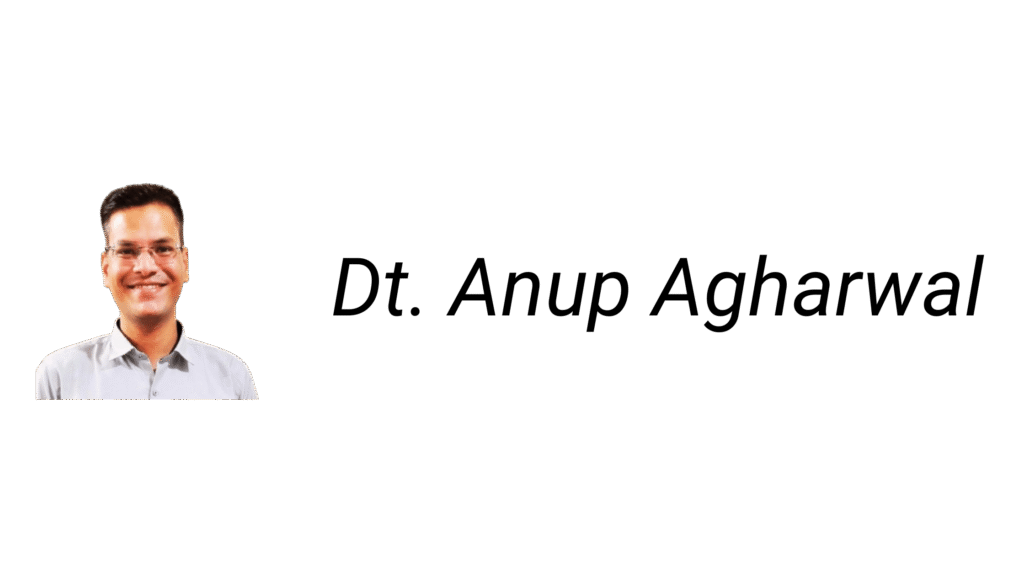
Table of Contents
The Hidden Truth Behind Extreme Dieting Dangers

In March 2025, the tragic death of a 19-year-old college student from Kerala shocked the nation. The young woman, Sreenanda, reportedly succumbed to multiple organ failure after enduring nearly a year of extreme water fasting. At the time of her death, she weighed just 24 kg — less than half the minimum healthy weight for her age and height. She had been consuming little more than water for several months, believing it would help her achieve her ideal body image.
Her case, reported by the Times of India, is not just another health headline. It is a brutal and deeply personal reminder of how the pressure to be thin — especially for young women — can have devastating consequences. Sreenanda had fallen into a dangerous cycle of restriction, misinformation, and obsession. And the source of her influence? Popular content online — influencers promoting unverified “detox” challenges, zero-calorie fasting routines, and “spiritual” diets promising transformation without nourishment.
In a digital era flooded with filtered bodies, viral transformations, and so-called “wellness gurus,” we often fail to pause and ask:
What’s the real cost of this kind of dieting?
The cost, as it turns out, can be someone’s life.
This is not just an isolated incident. The rise of eating disorders, crash dieting, and unsupervised fasting is climbing in India and around the world. Social media has become both a mirror and a magnifier — reflecting insecurities and amplifying dangerous narratives about how bodies should look.
Extreme dieting isn’t a shortcut. It’s a slow descent into physical, emotional, and mental deterioration.
As more people seek rapid weight loss through unsustainable practices — driven by Instagram reels, trending YouTube diets, or even seemingly “spiritual” food philosophies — we must confront what’s often ignored:
The very real, very dangerous consequences of extreme dieting.
This blog aims to shed light on:
- What happened in Sreenanda’s case and why it matters
- How extreme dieting harms the body and mind
- The truth about popular fad diets
- How to pursue health and weight loss safely
Because true health is not about shrinking — it’s about strengthening.
Not about punishment — but nourishment.
And definitely not about fear — but about freedom from misinformation.
Let’s break down the myths and face the reality of extreme dieting dangers — before another life is lost.
What Happened in Kerala? A Wake-Up Call

Sreenanda’s story isn’t an isolated incident. It’s a chilling reflection of a much larger crisis — where digital misinformation, body image pressures, and unsupervised health advice collide with deadly consequences.
In pursuit of what she believed was a healthier, thinner version of herself, Sreenanda reportedly adopted an extreme “water fasting” regimen she found online — one that promised rapid weight loss and “spiritual cleansing.” But what she didn’t realize is that she was stepping into a dangerously slippery slope toward a full-blown eating disorder: anorexia nervosa.
Anorexia nervosa is not just about eating less — it’s a serious psychological illness that distorts a person’s body image and leads them to fear weight gain at any cost. The result is extreme food restriction, malnutrition, organ damage, and in severe cases, death.
According to the Times of India, Sreenanda had stopped eating solid food for nearly a year. Her daily “diet” consisted mostly of water — sometimes with lemon or salt — mimicking the trends she’d seen online. The prolonged deprivation took its toll. She grew weak, was bedridden, and experienced sharp weight loss. When her condition became critical, she was admitted to Thalassery Cooperative Hospital, placed on ventilator support — but by then, the damage was irreversible. Her body had been pushed far beyond its limits.
At just 24 kilograms, Sreenanda’s body was in a state of advanced starvation. Her immune system was compromised, her muscles had wasted, and her organs were beginning to fail. Despite medical intervention, she passed away — a young life lost in the name of “wellness.”
What makes her death even more heartbreaking is that it was entirely preventable.
If only she had access to the right information.
If only she had been guided by qualified professionals.
If only the online space wasn’t filled with unchecked, glorified diet hacks.
Sreenanda’s case is not about a lack of willpower. It’s about the absence of proper guidance, the overexposure to toxic trends, and the dangerous gap in mental health awareness.
Her death serves as a grim wake-up call:
- That extreme dieting is not a trend — it’s a medical emergency in the making.
- That not every “fitness influencer” is an expert.
- That what works for one person can destroy another.
- That weight loss, when pursued without knowledge or support, can lead to irreversible damage.
Sreenanda’s passing is not just a personal tragedy for her family — it’s a public health concern. It urges us to ask:
- Are we doing enough to educate young people about the risks of unsupervised diets?
- Are mental health resources accessible enough for those battling eating disorders?
- Are platforms regulating misleading diet content?
We owe it to her — and to countless others silently suffering — to bring this issue to light, have hard conversations, and build a culture of safe, sustainable, and science-backed health practices.
What Are Extreme Dieting Dangers?
Red Flags to Watch Out For
- Extreme calorie restriction (under 1000–1200 kcal/day)
- Fasting without proper nutrition
- Removing entire food groups like carbs or fats
- Overuse of detox drinks or meal replacements
- Compulsive calorie counting or weighing food
These practices may offer quick results on the scale but severely damage the body from within.
Physical Impact of Extreme Dieting
- Slowed metabolism
- Hormonal imbalance (thyroid, reproductive hormones, cortisol)
- Electrolyte imbalance, risking heart function
- Muscle loss and weakness
- Hair loss, brittle nails, dry skin
- Weakened immunity
One of the most severe extreme dieting dangers is that it quietly disrupts vital body functions, sometimes with irreversible consequences.
The Mental Health Side of Dieting Culture
From Diet to Disorder
With social media influencers glorifying rapid weight loss, young minds are more vulnerable to disorders like:
- Anorexia nervosa
- Orthorexia (obsession with healthy eating)
- Body dysmorphia
- Exercise addiction
What begins as a desire to “get fit” often spirals into chronic fear, obsession, and mental distress.
Among the extreme dieting dangers is the psychological toll it takes — leading to anxiety, isolation, and disordered eating habits.
Dangers of Fad Diets – What Science Says
Most Common Fads and Their Risks
| Diet Trend | What It Promises | What It Actually Does | Potential Health Damage |
|---|---|---|---|
| Juice Detoxes | Quick cleanse & rapid weight loss | Cuts out essential nutrients and fiber | Severe calorie deficit, electrolyte imbalance, muscle loss |
| No-Carb Diets | Fast fat burn & leaner body | Starves the brain of glucose and reduces muscle glycogen | Brain fog, constipation, muscle breakdown, mood swings |
| 1200 Calorie Diets | Guaranteed fat loss | Drastically underfeeds the body, especially for adults | Slowed metabolism, hormonal imbalance, anxiety |
| Unsupervised Fasting | Mental clarity & fat burning | Lacks essential nutrients; unsustainable long-term | Fainting, fatigue, irregular periods, thyroid dysfunction |
Safe weight loss isn’t about starvation — it’s about strategy.
Extreme doesn’t mean effective. Long-term health comes from balance, education, and expert support. The trap of extreme dieting dangers lies in their short-term rewards but long-term damage.
Don’t Starve Yourself to Lose Weight
Starvation Is Not Sustainable
When the body is deprived of essential nutrients:
- Immunity weakens, leading to frequent illness
- Skin and hair lose vitality
- Cognitive function declines (brain fog, poor focus)
- Hormonal balance is disrupted
- Cravings and binge eating tendencies increase
Instead of becoming healthier, your body enters survival mode, slowing all functions to preserve energy.
The worst part about extreme dieting dangers is that they promise health but deliver harm, often irreversibly.
How to Lose Weight the Right Way
Smart, Balanced, and Sustainable Methods
Set Realistic Goals
- Aim to lose 0.5 to 1 kg per week
- Avoid rapid loss — it often means muscle and water, not fat
Follow Balanced Nutrition
- Include adequate protein: lentils, paneer, eggs, fish, chicken
- Eat complex carbs: rice, roti, oats, sweet potatoes
- Use healthy fats moderately: ghee, nuts, olive oil
Focus on Lifestyle
- Combine strength training and cardio for better metabolism
- Stay hydrated and prioritize 7–8 hours of sleep
- Avoid skipping meals or drastic calorie reductions
Listen to Professionals
- Always consult a certified dietitian or nutritionist before starting a new diet plan
- Avoid taking advice from unverified online sources
Let’s Prioritize Health Over Hype
Sreenanda’s tragic story is more than news. It’s a call to reevaluate our relationship with our bodies, food, and the weight loss industry.
Let’s stop chasing unhealthy ideals and start listening to our bodies. Safe weight loss is not about eating less — it’s about eating right.
If you or someone you know is falling into the trap of extreme dieting, speak up. Seek help. Your body is meant to be nourished, not starved.
Explore Related Reads
For those looking to continue their journey toward mindful, science-backed, and safe nutrition, here are three insightful reads from our blog:
- Intermittent Fasting Food Guide
A science-based exploration of how to use intermittent fasting correctly—without falling into common traps like nutrient deficiencies, fatigue, or disordered eating habits. - Natural Weight Gain Journey
The personal story of going from underweight to wellness entrepreneur. This transformation shows that sustainable health is built on nourishment, not starvation or extremes. - How to Identify Fake Paneer
In a world full of food adulteration, this blog helps you recognize poor-quality or fake paneer — and why your food choices directly impact your health goals.
References
- National Institute of Nutrition, India
- World Health Organization (WHO) – Guidelines on Adolescent Nutrition
- Indian Dietetic Association (IDA)

🎯 10+ years of Experience
🎓 10k+ Trained ( 📍 Jaipur )
💪 Helping change people’s lives
🌿 Most trusted lifestyle counselor